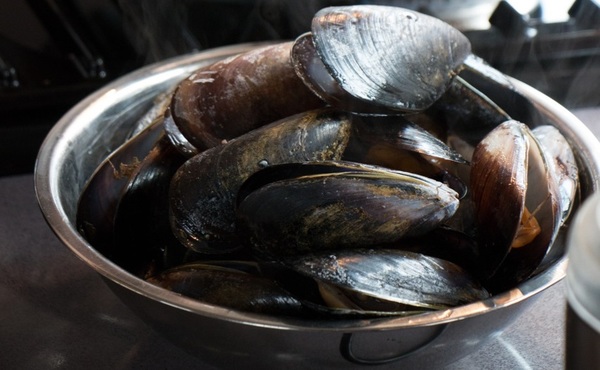Mussels could be a cheaper, more environmentally-friendly source of omega-3 than fishy alternatives, according to a Waurn Ponds nutritionist leading an international study.
Deakin University’s Lee Hamilton worked with Stirling University colleagues to feed 12 Scottish students mussels three times a week for a fortnight.
Depending on each student’s diet, different amounts of mussels replaced their regular protein source at lunch, Dr Hamilton explained.
“We cooked them a number of different recipes, including spaghetti with mussels, mussel couscous, and bread with mussel broth.”
A “relatively small amount” of mussels was enough for participants to meet recommended omega-3 targets, the study found.
“Some of them even saw an improvement in their omega-3 index,” Dr Hamilton said.
“That’s critical as the omega-3 index is an important marker of heart health.”
Omega-3s are fatty acids important for brain development and inflammatory balance.
Dr Hamilton said the body could produce long-chain omega-3 from canola oil and walnuts but the process was “very inefficient” compared to marine sources.
Australian Heart Foundation recommends two to three portions of fish weekly, including varieties high in omega-3.
Only one in five people globally consumed enough omega-3 due to not eating enough oily fish or shellfish, Dr Hamilton explained.
“But if the world’s population did hit that target, it would decimate the ocean’s food stocks,” he said.
“Marine-derived omega-3s are critical for human health, but popular sources such as salmon aren’t as environmentally-friendly as some shellfish sources.”
Dr Hamilton said mussels were generally farmed sustainably and had a very low carbon footprint compared to other meats, including farmed salmon.
“Because they are plankton-filter feeders mussel aquaculture is considered to have a minimal environmental impact.”
His study aimed to examine if the environmentally-friendly alternative could improve omega-3 intake.
Mussels purchased from a local supplier had a similar price to more common meat sources in Australia, Dr Hamilton said.
“The price per milligram of omega-3 is similar to other popular sources like salmon.
“I really want to re-frame how people see mussels. Mussels are not just a starter in a fancy restaurant, they can be used as a protein component in a variety of ways.”











